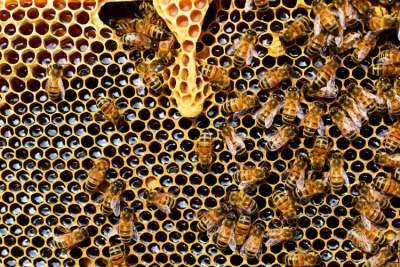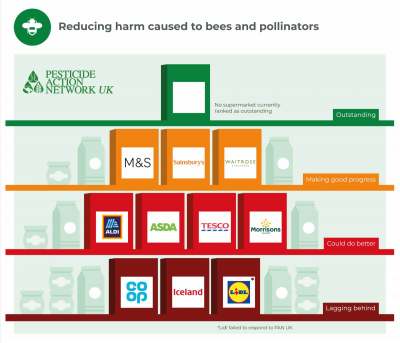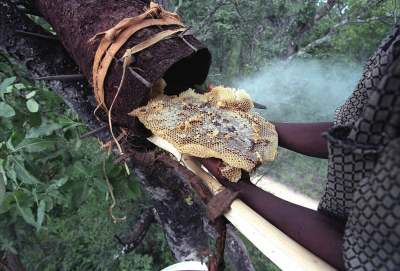This is one of our archived guides and as such does not include a score table. However we have kept the page alive so that you can continue to see the key issues in this sector, in both the buying advice and the in-depth analysis.
If there are particular brands you are interested in they may appear in other food guides, or you can search for the company name in the search box at the top of the web page.
Is there any ethical honey?
While there are strong arguments for cutting down our honey consumption, or even avoiding it altogether, we obviously want to make sure that the honey we do buy minimises harmful practices. This guide looks at the problems with honey production, as well as ways to produce the least harmful honey.
Who had the best bee welfare policies?
We asked companies to send us their bee welfare policies (and searched the websites of those that didn’t respond). We expect companies to be discussing issues such as wing clipping, artificial insemination and the use of harsh chemicals in the hives.
Only three companies appeared to have comprehensive bee welfare policies. Wainwrights (Tropical Forest) had the most comprehensive policy and discussed natural beekeeping methods as well as prohibiting the most harmful practices.
Equal Exchange, Hilltop Honey and Littleover Apiaries also had adequate policies. Windmill Organics (Raw Health Honey) did not have a policy, however it was only selling honey that was certified as organic which was considered a mitigating factor.
All the other companies lost half a mark under Animal Rights for having limited or no bee welfare policies. The absence of a policy does not necessarily mean bad practices are taking place. However, the rarity of a comprehensive and public bee welfare policy among companies selling honey could be seen to demonstrate a real need for a change in attitude towards honey bees and honey production.
Why isn't honey vegan?
Honey is categorically not vegan. However, this does seem to cause some confusion and the internet is full of people asking, “is honey vegan?”
The Vegan Society explains: “There is a common misconception that honey bees make their honey especially for us, but this couldn’t be much further from the truth”.
Essentially, honey is not vegan because it involves the exploitation of animals, and it is an animal product that comes from them. Honey not only protects bees from starvation through the winter months, but it also has the right nutrients to keep them healthy.
The sugar syrup many beekeepers provide as a feedstuff during the winter is a poor substitute for the honey. Even if the honey is sourced from more ethical beekeeping methods, it still involves some human interference with what would happen naturally.
If you are avoiding honey check out the most ethical vegan alternatives to honey.
What’s wrong with conventional beekeeping?
Trying to produce honey at an industrial scale has led to many highly interventionist beekeeping practices that aim to manipulate the natural behaviour of bees to increase honey yields and reduce costs. These interventions can put colonies under a lot of stress and, even when done in the name of bee health, are arguably damaging to bee populations as a whole.





